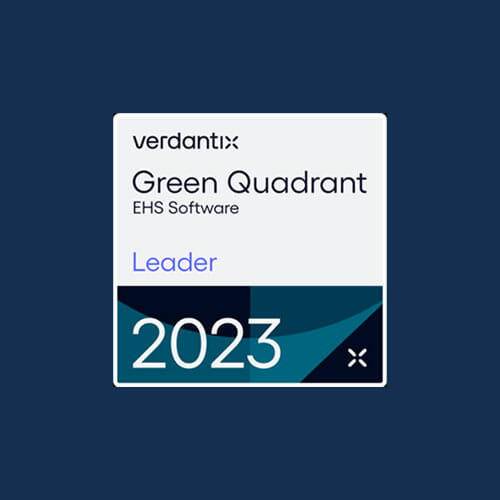The disclosure platform for CDP 2024 officially opened for companies this week. Many organizations across all sectors worldwide are invited to report their environmental data through CDP, representing the first time reporting for many. Cority, a Gold CDP accredited software provider, recently held a webinar with a guest speaker from CDP, on ‘CDP Reporting in 2024 – What to Expect and How to Prepare’. Attendees participated with a myriad of inquiries throughout the discussion and we compiled the answers to some of the most frequently asked questions about the 2024 CDP reporting cycle.
1. Are all corporate disclosures required to respond to the biodiversity and plastics questions? Or does it depend on the ACS classification?
This year, all organizations responding to the full corporate questionnaire (not the SME questionnaire) must answer the plastics and biodiversity sections. However, these sections are unscored.
2. Isn’t it more important to focus on actual carbon reduction than improving our CDP score?
Action is crucial for the transition. However, the CDP score reflects emission reductions and how well environmental management is integrated into the business. Additionally, CDP’s integrated questionnaire improves the reporting process to reduce time spent on reporting and increase capacity for action. The Cority Advisory services team can help link tangible actions in the short and long term to improve CDP score, as well as minimize environmental impacts.
3. Does CDP consider CSRD? If so, how will it help us prepare and deliver our future reports under the EU’s directive?
CDP is aligning its portal with the ESRS from an environmental perspective, also supported by EFRAG. Also, in 2024, CDP will offer webinars and guidance to help companies report on ESRS data points through CDP.
4. How will scoring work? What if you could achieve an A on climate but would not receive an A in biodiversity or plastics – would that bring your climate and/or overall CDP score downward?
Scores are separate across the three key environmental issues: climate change, forests, and water security. Also, the themes do not impact each other’s scores. However, companies performing well in one theme often manage impacts across other areas. Additionally, the biodiversity and plastics modules are currently unscored.
5. Why would we choose CDP versus something like Ecovadis which covers ESG topics?
CDP disclosure helps companies track and benchmark their progress against industry peers. CDP also provides an internationally recognized sustainability score and feedback on your climate targets. Additionally, CDP has the most comprehensive collection of self-reported corporate environmental data globally. In 2023, 23,000 companies, representing two-thirds of global market capitalization, disclosed through CDP.
6. How can you identify which specific question negatively affected your score?
CDP offers Score Feedback Calls after you receive your score. This paid service provides question-specific examples of gaps in your disclosure and offers recommendations to help you improve.
7. What does alignment with frameworks mean in practice? Is data replicated, or is it aligned by agreement on best practices?
Alignment with frameworks provides a comprehensive dataset in line with the latest standards. This aims to keep you updated with the changing market and ambitious standards. CDP also aligns with other frameworks to allow easy interchange of information across various reports. Thus, reducing the need to reproduce data for all reporting requirements. Get more information on how CDP aligns with these frameworks here.
8. Are there consequences for not reporting to CDP Forests or Water if CDP deems it relevant to an organization this year?
Companies may be requested to respond to additional themes (Forests and/or Water) in three ways:
- They are part of the Forests or Water Capital Markets samples. Declining to respond leads to an F score for that theme.
- Their ACS classification warrants a Forests or Water response. If they are in a Capital Markets sample, declining to respond leads to an F score for that theme.
- They are directly requested to respond to a Forests or Water theme by a requesting authority. Declining to respond does not lead to a public F score for that theme.
Additionally, companies may ‘self-request’ based on their assessment and identification of forests and/or water-related issues in their questionnaire setup.
9. Is external verification a requirement?
External verification assures that the emissions data provided is accurate, thus offering a strong foundation for making informed decisions on reductions. Emissions verification is necessary to reach leadership levels. Cority’s Sustainability Performance Management Software solution is designed to support your sustainability and ESG Strategies. One of the key features includes an audit trail of what data has been uploaded, when, and by whom is displayed for each emission source, along with the date and time.
Cority and CDP
As a Gold accredited solution partner, Cority is proud to support CDP and align with its mission to provide a global disclosure system for investors, companies, and cities to manage their environmental impacts.
Our suite of dedicated tools operationalizes the CDP reporting process – including GHG Protocol aligned data collection, internal verification systems and workflow assistance, an API to automate the disclosure process and more.
Cority has over a decade of experience providing advisory services related to CDP, from mock-scoring exercises to fully outsourced CDP response project management. Our dedicated, award-winning team can support with:
- Calculating a predicted CDP score
- Highlighting short-term and long-term opportunities
- Providing ongoing support to improve client internal initiatives and align organizational strategy with CDP disclosure
- Project management of the entire submission process
If you have a question about your CDP response for 2024, or your broader sustainability reporting strategy, please talk to us.
Discover the latest news and stay up to date with all the changes regarding CDP disclosure.
On Demand Webinar | CDP Reporting in 2024 – What to Expect and How to Prepare













